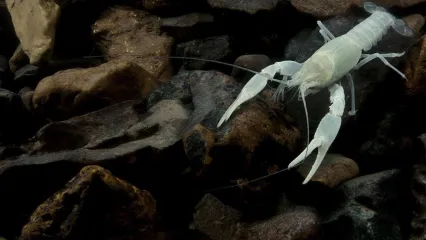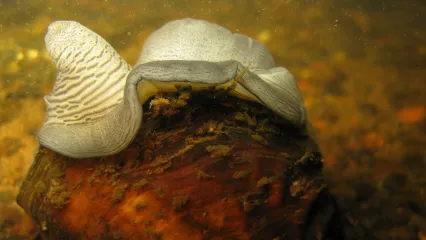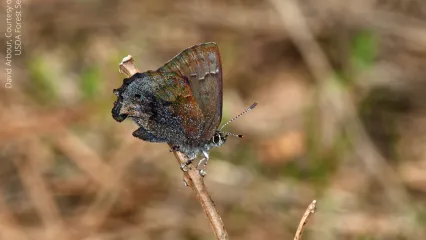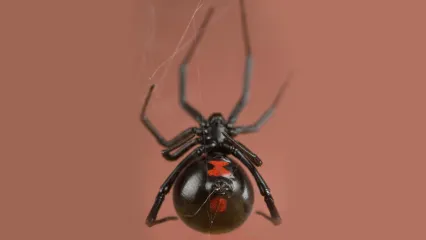
Description
This is a small crayfish that averages no more than three inches in length with a white or colorless appearance. It has no external eyes, thin pinchers and legs.
The species is most at risk from groundwater pollution, which causes habitat degradation by reducing water quality. Direct disturbance of cave habitats by humans is another threat.
Size
No more than three inches in length.
Habitat
This crayfish is found only in the shallow groundwater aquifer underneath portions of the Spavinaw and Saline Creek watersheds in southern Delaware County. Considered a state endemic species, it is known from just three cave systems and has never been found outside of Oklahoma. Its current distribution appears to be the same as its historic range. This species co-occurs with the federally-threatened Ozark cavefish. The Oklahoma cave crayfish occurs in subterranean pools and streams in the limestone caves of the Ozark highlands.
Life Cycle
As with other crayfish, this species is likely an opportunistic feeder, consuming both plant and animal matter that has come to lie on the floor of underground streams. Like many other cave organisms, it has adapted to conditions with no light and uses other sensory organs to survive and locate prey. The reproductive habits of this crayfish are unknown.


